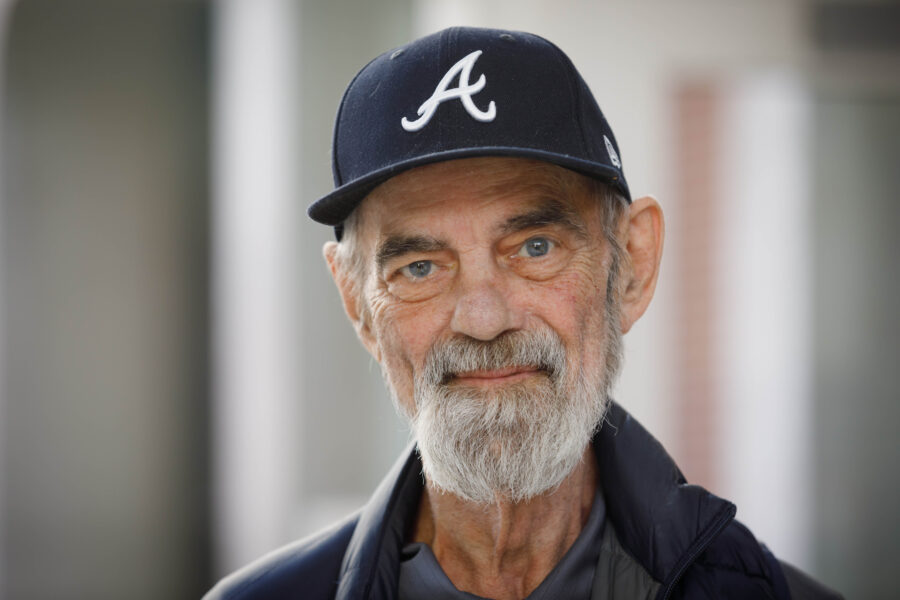Tom McDonald, PhD, remembers a road trip from his graduate school days in Pullman, Washington, at Washington State University in 1972.
“There were about eight of us that wanted to go to a meeting in Minnesota, but our advisors and the department didn’t have enough money to send us,” he said. “So, we all chipped in and rented a big station wagon and drove there at our own expense and all stayed in the same room. We drew straws to see who got the beds and who got the floor.”
He also remembers an unsuccessful attempt to create a graduate student association back in his student days.
“We had no money to even buy a pizza for a meeting.”
After 43 years at UNMC, Dr. McDonald said he’s seen that graduate students are better supported – especially in his own UNMC Department of Pathology, Microbiology and Immunology. But when he was considering a gift to the department, the memories of his grad school days inspired him.
“I’m not saying the university doesn’t take care of the graduate students; they do very well,” he said. “But what if the graduate students want to bring in an extra speaker? Or have a planning luncheon? Attend a conference with a large group? Enhance communication skills and programs to advance their organization that require funding not within the department’s budget?”
Those memories are what led Dr. McDonald to contact the University of Nebraska Foundation to arrange for a donation to the UNMC Department of Pathology, Microbiology and Immunology dedicated to supporting graduate students.
The decision to donate, Dr. McDonald said, also is a way of giving back to an institution that unexpectedly became a home in the years since he arrived as an assistant professor in 1980.
“When I initially arrived, I wanted to spend out my grants, acquire new funding and build up my professional status and then move on,” he said.
But the synergy between MDs and PhDs at the medical center was invigorating, he said, giving him opportunities to directly apply his research – focusing on a protein biomarker of inflammation and infection in the digestive system — to clinical care.
“My research always is geared for application, and UNMC provided opportunities for that. So I decided I would stay — maybe five years — and I never found any reason to move on.”
Another factor in that decision, he said, was the supportive atmosphere of the university and the department, which continues today.
“UNMC is filled with wonderful people to work with, in just about any organization or department you talk about. I’ve seen nothing but openness, friendliness and a willingness to cooperate and collaborate.”
Dr. McDonald compared his gift to placing one brick in the foundation of UNMC to help the pathology department provide for its graduate students.
“I would like to make those first steps a little easier, to provide opportunities that otherwise might be missed,” he said. “I see this contribution as a small piece that is going to help the university be a better place, even with how small that brick may be.”
Joseph Khoury, MD, chair of the department, said Dr. McDonald’s contributions to the mission areas of research and teaching have been abundant and selfless throughout his career.
“This gift adds to the innumerable contributions that Dr. McDonald has brought to UNMC over his decades of service. It provides a capstone to his legacy at UNMC and a lasting resource that will be put towards enriching the learning experience of graduate students in our department-sponsored program: Immunology, Pathology, and Infectious Disease (IPID).
“Tom is passionate about UNMC. It’s his home, and he’s family,” Dr. Khoury said. “His passion and affection toward the institution has manifested itself in many different ways over the years. This gift, which will be of great help to the IPID program, will leave an imprint on generations of students for years to come.”
Dele Davies, MD, dean of Graduate Studies at UNMC, thanked Dr. McDonald for his gift, pointing out how it will help the department recruit and retain the best students in the country, and also recruit excellent faculty who know they can rely on these graduate students.
“I commend Dr. McDonald on recognizing and supporting the unique needs of graduate students as they play a critical role in helping meet UNMC’s vital research mission,” Dr. Davies said. “Whether it is in activities such as developing novel drugs to fight malaria or the flu, new ways to combat COVID or their work in helping us better understand how the GI tract protects human health, graduate students bring innovation and crucial hands-on skills that test and convert ideas into tangible results and products under the supervision of our talented faculty.”
“Dr. McDonald already dedicated multiple decades of his career to UNMC,” Dr. Davies said. “Now he is ensuring his legacy will multiply and last through many generations with this gift.”
